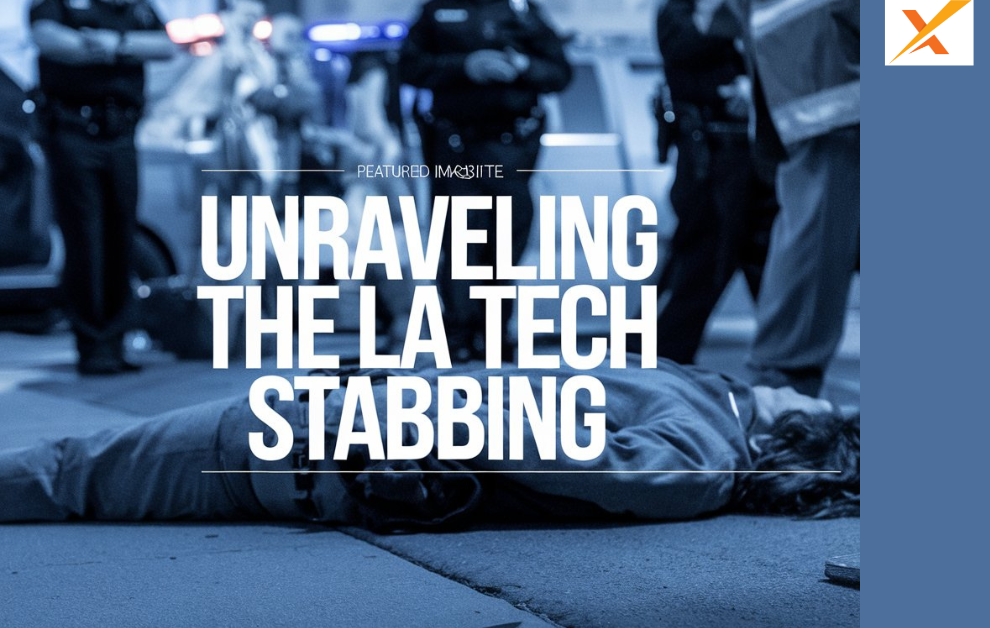Unraveling the LA Tech Stabbing: Understanding the Incident and Its Impact

The LA Tech stabbing incident sent shockwaves through the campus community and beyond sparking conversations about safety, mental health and the role of universities in preventing violence. The tragic event not only disrupted the routine of Louisiana Tech University but also underscored the need for proactive measures to ensure student well-being.
In this detailed analysis, we’ll dive into the events surrounding the stabbing at LA Tech examine the broader implications and explore how such incidents can be mitigated in the future.
The Timeline of Events
The Louisiana Tech stabbing today remains a significant point of discussion for students, faculty and law enforcement. Here’s a detailed breakdown of what occurred:
What Happened
On a seemingly regular day at Louisiana Tech University in Ruston, LA, the campus was thrown into chaos when a stabbing occurred. Eyewitness reports stated that the altercation began near a dormitory escalating rapidly into a violent encounter.
Time and Location: The incident took place during the early evening near the student recreation area.
Individuals Involved: A key figure in the case is Jacoby Johnson of Ruston, LA identified as a suspect in the attack. The victim whose identity remains protected sustained serious injuries but survived after immediate medical attention.
Immediate Response
The university’s safety protocols were put to the test:
- Campus police arrived on the scene within minutes securing the area and assisting the injured.
- A campus-wide alert system notified students and faculty urging them to shelter in place while authorities assessed the situation.
- Ruston law enforcement collaborated with university security to investigate the motive and circumstances.
These swift actions likely prevented further harm and showcased the importance of preparedness during emergencies.
Background of Louisiana Tech University
Louisiana Tech University, located in Ruston, Louisiana is known for its strong academic programs and tight-knit campus culture. However, this incident highlights the vulnerability even well-regarded institutions face when dealing with unexpected acts of violence.

Personal History of the Suspect
The suspect was known to have a troubled past, including family issues and academic pressures. Friends described them as having gone through significant personal challenges in recent years.
Mental Health Concerns
Mental health played a major role in the case. The suspect had been struggling with mental health issues that were either undiagnosed or untreated for a prolonged period.
Prior Legal Issues or Red Flags
Though the suspect did not have a criminal record, there were some red flags involving odd behavior that might have pointed to deeper issues.
Campus Safety Record
Before the LA Tech stabbing today, Louisiana Tech boasted a relatively clean safety record:
- Crime statistics from previous years indicated a low rate of violent incidents compared to similar-sized universities.
- The university had implemented preventive measures such as 24/7 campus security patrols and a robust emergency alert system.
While no institution can guarantee complete safety, this incident raised questions about the adequacy of existing protocols and whether additional measures are needed.
Read Also: Rise Education St Louis
Investigative Findings
In the aftermath of the stabbing law enforcement focused on uncovering the motive and piecing together the events leading up to the attack.
Suspect Details
- Jacoby Johnson of Ruston, LA emerged as the primary suspect. Johnson a student at the university was known to have previous conflicts with the victim although the exact nature of their relationship is still under investigation.
- Authorities revealed that Johnson used a pocketknife in the attack which he carried illegally on campus grounds.
Legal Proceedings
- Johnson was arrested shortly after the incident and is currently facing charges of aggravated assault with intent to cause bodily harm.
- Court hearings have brought additional scrutiny to campus security policies and whether preventive actions could have averted the attack.
Emotional and Academic Impact on the LA Tech Community
The effects of the stabbing at LA Tech ripple far beyond the immediate event. The campus community has faced emotional, psychological and academic disruptions.
Emotional Toll
Students expressed fear and uncertainty about returning to campus spaces. Counseling services saw a surge in demand with many students seeking support for anxiety and trauma.
“It’s hard to focus on your studies when something like this happens so close to home,” said one sophomore. “You don’t feel safe anymore.”
Academic Disruptions
Classes in the vicinity were canceled for several days to allow law enforcement to investigate. Online learning options were briefly expanded to accommodate students who were hesitant to return to physical classrooms.
Campus Safety Policies: Then and Now
The Louisiana Tech stabbing today has led to critical evaluations of the university’s safety measures. Before the incident, the campus relied on a mix of traditional and modern security strategies.
Pre-Incident Policies
24/7 Security Patrols: Uniformed officers monitored the campus particularly high-traffic areas like dorms and lecture halls.
Emergency Alert System: Students could receive SMS alerts in real time during emergencies.
Self-Defense Workshops: The university hosted occasional sessions to teach students basic self-defense techniques.
Post-Incident Changes
In response to the tragedy, Louisiana Tech has implemented or is considering the following measures:
Increased campus police presence during late hours.
Installation of additional surveillance cameras in vulnerable areas.
Mandatory self-defense and conflict resolution workshops for incoming freshmen.
Lessons Learned and Moving Forward
The LA Tech stabbing serves as a grim reminder of the importance of preparedness and awareness. Here are key takeaways for universities, students, and parents:

For Universities
- Proactive Safety Training: Conduct regular drills to prepare students and staff for emergencies.
- Open Communication Channels: Foster an environment where students feel safe reporting concerns about peers.
- Technology Upgrades: Invest in AI-driven surveillance systems that can detect potential threats in real time.
For Students
- Use safety apps to stay connected with campus security.
- Travel in groups, especially during late hours.
- Be vigilant about your surroundings and report suspicious activity.
For Parents
- Discuss safety practices with your children before they head to college.
- Encourage participation in campus safety programs and workshops.
Conclusion
The LA Tech stabbing today is more than a tragic headline, it’s a wake-up call for institutions and individuals alike. By learning from this event and implementing robust safety measures, we can strive to prevent such incidents in the future. It’s a shared responsibility requiring cooperation from universities, students and society at large.
FAQs
What Is a Sanity Appeal in Legal Terms?
A sanity appeal is a legal request to evaluate whether a defendant was mentally capable of understanding their actions at the time of the crime.
How Common Are Sanity Appeals in Criminal Cases?
Sanity appeals are not very common as they require substantial evidence and often involve extensive mental health evaluations.
What Happens Next for the Suspect?
The suspect will be transferred to a mental health facility for treatment with periodic evaluations to assess their progress.
How Has the Community Reacted to the Case?
The community’s reaction has been mixed with some supporting the focus on mental health while others believe the suspect should face harsher consequences.
What Impact Does Mental Health Have on Legal Proceedings?
Mental health can significantly impact legal proceedings often determining whether a suspect is fit to stand trial or whether they should be held accountable in the same way as someone without mental health issues.




